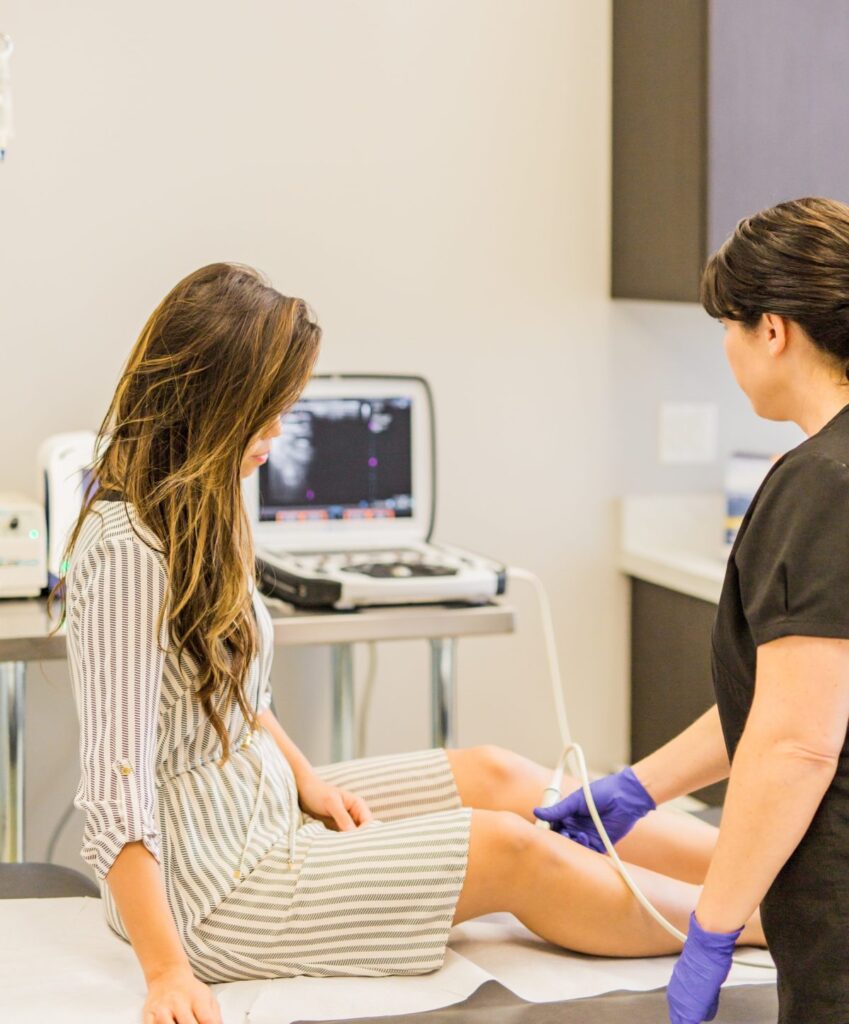If you're hoping to get rid of your painful varicose veins, it's time to explore radiofrequency ablation, a minimally invasive vein treatment offered at our Georgia vein clinic. First developed 25 years ago to provide a less invasive alternative to vein surgery, this endovascular procedure uses heat to close off your faulty veins. But what are varicose veins? And when would you choose this treatment option? Keep reading to find out
Varicose veins become visible on your skin's surface when internal valves stop working properly. This malfunction allows blood to pool in the veins, causing them to bulge or even take on a twisted, ropy appearance. But there's so much more to worry about than just that unsightly appearance.
With varicose veins, your legs may also feel heavy or aching. You could experience cramps, swelling in your lower legs, itching or even changes to the color or texture of your skin. And, since vein disease is progressive, your symptoms will worsen unless you seek treatment.

Today, there are so many ways to treat varicose veins without undergoing surgery. And, to help you decide when to choose radiofrequency ablation or an alternative, we provide patients with an ultrasound vein evaluation that determines the extent of your vein disease, helping us guide you towards the right treatment path. Options include:
As we mentioned earlier, this treatment option uses heat to permanently shut down damaged veins. When that happens, your blood flows through healthy veins, and your varicose veins become much less visible or disappear entirely.
Now, to perform this procedure, we guide a radiofrequency electrode via catheter to the damaged veins. Then, using ultrasound imaging, we can directly target troubled areas for a more precise treatment. Finally, because we can avoid general anesthesia in favor of topical analgesics, your recovery following the procedure should be easier. And you can go home on the same day as you receive radiofrequency ablation!
Afterward, however, you will have to wear doctor-prescribed compression stocking for several weeks, as directed. But that will be your only recovery-related restriction: right after your procedure, you're allowed to return to your normal activities.
Remember, vein disease is progressive, so it's important to seek treatment as soon as you notice signs of varicose veins. For some patients, that will mean scheduling radiofrequency ablation. For others, you may need to be guided toward alternative treatment options. But we can't help you choose the right treatment path until we see you in the offices. And that's why we invite you to click here to request an appointment today with our vein specialists in Georgia!

Scheduling
Please contact our dedicated specialists to schedule a consultation today.
2024 Georgia Endovascular. All rights reserved. Website Design by Healthcare Success